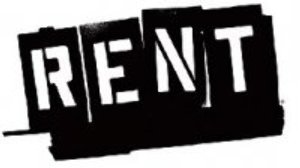by Miriam Bell

TOP, which is Gareth Morgan’s new political party, has released its housing policy and it focuses on reform of the residential rental market.
High property prices mean that many New Zealanders will never own their own property and recent data shows that the percentage of renters has increased considerably.
Morgan’s party argues that the country’s rental market is immature because it fails to provide the growing numbers of tenants with security of tenure.
To this end, TOP would change the regulations around residential tenancy law so that leases make it easier for a tenant to remain in a rental property long term.
The key to this is long term tenancy rights so people can opt to be tenants forever and not be undermined by fear of losing their home, the policy said.
“This will be achieved by restricting the conditions under which a landlord can evict a tenant to those of non-payment of rent or property damage.
“The sale of a property is not necessarily a legitimate reason for eviction.”
Under the policy, tenants would be able to give 90 days notice.to end a tenancy.
But if tenants violate lease conditions, such as payment of rent or care of the property by damaging the property or using meth, they could be evicted.
TOP would also require a Warrant of Fitness for all rental properties in order to ensure sanitation, warmth and energy efficiency standards.
Additionally, tenants would be able to redecorate and make small alterations to rental properties with the landlord’s approval.
According to TOP, the policy would not act as a disincentive to landlords and would not reduce the amount of rental properties available.
Rather, in conjunction with the party’s plan to levy annual taxes on property owners, it would remove the incentive to land bank or speculate on housing, leaving rental income as the chief reason to own property.
“This will provide a strong incentive to build and rent out accommodation.
“Landlords will be able to charge market rents, but without rapidly increasing land and house prices we expect these to stabilise at a reasonable rate of return for landlords.”
However, investor advocates disagree.
Auckland Property Investors Association president Andrew Bruce said that anything that makes it tougher for landlords could have a scary effect on the rental market.
“A system as onerous as TOP is suggesting would disadvantage landlords – particularly when the current question marks over what constitutes tenant damage are taken into account.
“This would only serve to put investors off residential rentals and further exacerbate the shortage of rental accommodation.”
Many New Zealand tenants don’t want to sign long term fixed tenancy agreements, Bruce added.
“Students don’t tend to want long term tenancies, although families might. But I have had one tenant in the same property for 10 years and he still doesn’t want to sign a fixed term agreement.”
NZ Property Investors Federation executive officer Andrew King has previously said that such changes to tenancy standards and regulations would put off landlords.
“The majority of rental property owners would also like longer term tenancies, but policies cannot provide tenants with higher rights than owners.”
Calls for greater security of tenure for tenants and the introduction of a WOF for rental properties are far from new.
Both the Labour Party and the Green Party have been advocating similar proposals in recent years.
In December last year, Green Party co-leader Metiria Turei’s Residential Tenancies (Safe and Secure Rentals) Amendment Bill failed to make it through its first reading in Parliament.
Labour Party leader Andrew Little’s Healthy Homes Guarantee No 2 Bill is at the Select Committee stage, but it is likely to be fiercely contested in its passage through the House.
Read more:
Greens rental bill could put off landlords
| « Airbnb sub-letting breaches RTA – Tribunal | Rent for “typical” NZ house hits all-time high » |
Special Offers
Sign In to add your comment

© Copyright 1997-2026 Tarawera Publishing Ltd. All Rights Reserved